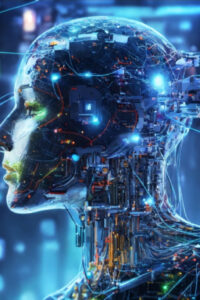Quantum Computing in 2025: The Next Frontier of Technology
In 2025, quantum computing is no longer just a concept in theoretical physics or computer science; it has become a tangible, transformative technology that is poised to revolutionize industries, solve complex problems, and redefine the limits of computing. Unlike classical computers that use binary bits to process data, quantum computers leverage the principles of quantum mechanics to perform calculations at exponentially faster speeds and with far more precision.
Quantum computing holds the potential to solve problems that are currently intractable for even the most powerful supercomputers. In this article, we explore what quantum computing is, how it works, its current state in 2025, and its potential applications across various fields.
What is Quantum Computing?
Quantum computing is based on the principles of quantum mechanics, which governs the behavior of matter and energy on extremely small scales, such as atoms and subatomic particles. Unlike traditional computers, which use binary bits (0s and 1s) to represent data, quantum computers use quantum bits or qubits.
A qubit can represent both 0 and 1 simultaneously due to a phenomenon known as superposition. This allows quantum computers to process a massive amount of data in parallel, making them incredibly powerful for certain types of complex calculations. Another key principle is entanglement, where qubits that are entangled can influence each other instantly, even over long distances. This leads to a new form of parallelism, where quantum computers can perform multiple calculations at once, exponentially increasing their computational power.

How Quantum Computing Works
Quantum computing harnesses several key concepts of quantum mechanics:
- Superposition: As mentioned, a qubit can be in a state of 0, 1, or both 0 and 1 at the same time. This property allows quantum computers to explore many possible solutions simultaneously.
- Entanglement: When qubits are entangled, the state of one qubit is directly related to the state of another, regardless of distance. This allows quantum computers to perform coordinated calculations in ways that classical computers cannot.
- Quantum Interference: Quantum algorithms exploit interference to amplify correct answers and cancel out incorrect ones, allowing the quantum system to converge on the right solution more efficiently.
These principles, combined, make quantum computers extraordinarily powerful for specific tasks that would take classical computers thousands of years to complete. However, quantum computing is still in its early stages, and much research is needed to fully realize its potential.
The State in 2025
As of 2025, It has made significant strides toward becoming a mainstream technology. Several tech giants and research institutions are investing heavily in quantum computing, and some early quantum processors are already in operation. Companies such as IBM, Google, Intel, and Microsoft are making substantial progress in the development of quantum hardware, quantum algorithms, and quantum software.
Key developments in quantum computing include:
- Quantum Hardware: Quantum processors are evolving from early prototypes to more stable, scalable systems. Advances in superconducting qubits, trapped ions, and topological qubits are enabling the creation of quantum computers with more qubits and greater stability.
- Quantum Algorithms: Research into quantum algorithms is accelerating, with algorithms being developed for optimization problems, cryptography, and machine learning. Quantum algorithms are designed to take full advantage of quantum mechanics, making them far more efficient than classical algorithms for certain tasks.
- Quantum Software and Cloud Computing: In 2025, quantum software is becoming more sophisticated, and quantum cloud services are being offered to users around the world. This enables organizations to access quantum computing power without needing to invest in expensive hardware, bringing quantum computing closer to practical applications.
However, challenges remain in terms of error correction, qubit coherence times, and scalability. Building large-scale, fault-tolerant quantum computers is a major goal, and researchers are working tirelessly to overcome these barriers.

Applications
It is expected to have a profound impact across a wide range of industries. While the technology is still in its infancy, by 2025, several applications have already started to show their potential:
1. Drug Discovery and Healthcare
One of the most promising applications of quantum computing is in the field of drug discovery and healthcare. Quantum computers can simulate the behavior of molecules and atoms at a level of detail that is impossible for classical computers. This capability could drastically reduce the time it takes to discover new drugs, develop personalized treatments, and understand complex diseases like cancer, Alzheimer’s, and genetic disorders.
Quantum computers could also improve the accuracy of genomic analysis by processing large datasets more efficiently, enabling more effective gene therapies and precision medicine.
2. Optimization and Logistics
Quantum computing has the potential to revolutionize industries that rely on complex optimization problems, such as logistics, supply chain management, and finance. Quantum algorithms can solve optimization problems much faster than classical computers, helping businesses improve inventory management, route planning, and resource allocation.
For example, airlines and shipping companies can use quantum computing to optimize flight schedules, shipping routes, and fuel consumption, leading to significant cost savings and efficiency improvements.
3. Artificial Intelligence and Machine Learning
Quantum computing has the potential to dramatically enhance artificial intelligence (AI) and machine learning algorithms. The ability of quantum computers to handle vast amounts of data in parallel could lead to breakthroughs in areas such as pattern recognition, natural language processing, and predictive analytics.
Quantum machine learning algorithms could enable faster and more accurate training of AI models, which would benefit industries such as finance, healthcare, and autonomous vehicles.
4. Cryptography and Cybersecurity
Quantum computing could render many of today’s encryption algorithms obsolete, as quantum computers can solve certain mathematical problems exponentially faster than classical computers. This has led to the development of quantum-resistant cryptography, which aims to create encryption techniques that can withstand quantum attacks.
By 2025, governments and organizations are already working on post-quantum cryptography to ensure that sensitive data remains secure in a quantum-powered world. Quantum computing is expected to both challenge and enhance cybersecurity, with the potential to create unbreakable encryption and revolutionize secure communications.
5. Financial Modeling and Risk Analysis
In the financial industry, It could be used to model complex financial systems, predict market trends, and assess risks with unprecedented accuracy. Quantum algorithms could enable faster simulations of financial models, which would help investment firms, banks, and insurance companies make more informed decisions.
For example, quantum computing could improve portfolio optimization, asset pricing, and fraud detection, leading to a more efficient and secure financial ecosystem.
Challenges and Future
Despite the tremendous potential, there are several challenges that quantum computing must overcome before it can achieve widespread practical use:
- Qubit Stability: Quantum systems are extremely sensitive to their environment, which makes it difficult to maintain the stability and coherence of qubits. Researchers are working on quantum error correction and improving qubit stability to make quantum computers more reliable.
- Scalability: Building large-scale quantum computers requires a significant increase in the number of qubits while maintaining their integrity. This remains a major hurdle for researchers.
- Cost and Accessibility: Quantum computers are still expensive to build and operate, limiting access to only large organizations and research institutions. In the future, we may see more affordable, cloud-based quantum computing services that democratize access to quantum power.
Despite these challenges, the future of quantum computing looks incredibly promising. As the technology matures, it will likely revolutionize industries, improve our understanding of the natural world, and unlock new possibilities for solving humanity’s most complex problems.

Conclusion
In 2025, quantum computing is on the brink of unlocking its full potential, offering unprecedented computational power that could transform industries, solve intractable problems, and drive technological innovation. While challenges remain, the rapid progress in quantum hardware, algorithms, and software indicates that we are heading toward a future where quantum computers will play a central role in shaping the world of technology.
As researchers continue to explore new applications and refine quantum systems, we can expect quantum computing to revolutionize fields such as healthcare, finance, artificial intelligence, cryptography, and beyond, offering solutions to some of the most pressing challenges facing humanity.










